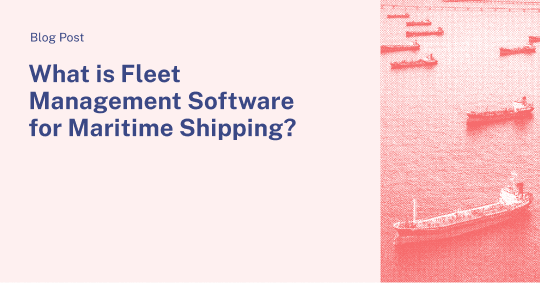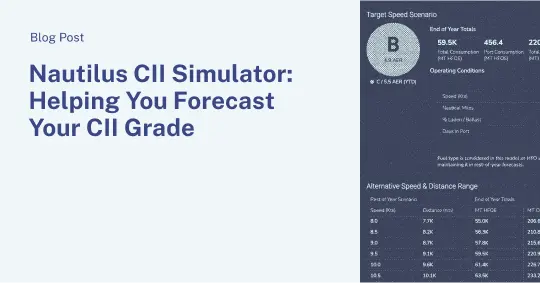Back in 2019, I wrote a blog post focused on how better collaboration between owners and charterers will be key in adhering to the rules set in IMO 2020 (Building Strong Charter Relationships When Fuel Quality is Dubious). The takeaway of that post is that high-frequency sensor data (HFSD) can help owners and charterers deduce performance impacts from poor fuel quality – otherwise, charterers will only see consumption spikes in their noon reports and ring the alarm bell of underperformance.
During that time, we were working with an LNG (Liquified Natural Gas) owner who received a large performance claim due to what – in the noon data – appeared to be exactly that, underperformance. On the other hand, by looking at the Certificates of Quality and leveraging Nautilus’s SFOC performance tool, we could clearly see that the apparent large spikes in consumption were correlated to specific cargo loadings at specific ports and seemed related to nitrogen burning off in the engine rather than overconsumption. By bringing together these threads within Nautilus Platform, we were able to assist the owner in making a case to the charterer which helped to bring down the initial claim. At the time, this was the extent of our platform’s capability. More beneficial than what could ever be possible on noon data analysis, but left something to be desired.
Today with the help of our latest investment round, our team has developed bleeding-edge cargo composition models to predict and optimize active voyages, helping our clients better collaborate with their charterer or owner partners. By using machine learning, we’re able to challenge the “tried and tested” voyage instructions of yesterday, delivering more LNG and reducing CO2 emissions across every voyage. Beyond its direct use in boil-off gas forecasting, cargo composition modeling can help us quantify the impact of cargo composition on SFOC and helps us showcase when nitrogen is being burned off in the engine and when it is not, which is especially relevant for nitrogen-rich voyages at risk for claims. This fidelity, that Nautilus is able to deliver, into what is actually happening to the cargo is good for both the owner and charter and we are working to use it to ignite collaboration and transparency across the market.
Our new approach, Boil-off Gas Optimization, allows us to simulate changes in cargo composition, temperature, and pressure over the course of a voyage with a high level of accuracy. We use these simulations to send voyage instructions to the vessels to maximize the amount of cargo delivered at discharge and reduce overall emissions.
Let’s talk about collaboration. Grab your favorite Owner or Charter partner, and give us a call.


